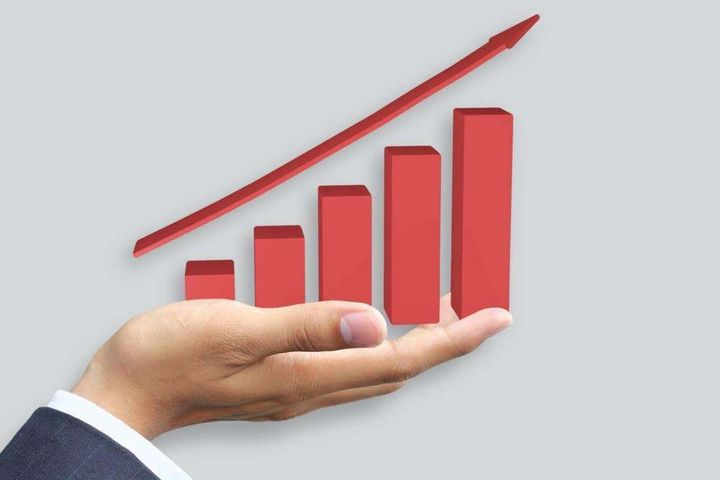 China to Focus on Economic Growth, Financial Stability Next Year, UBS Securities Says
China to Focus on Economic Growth, Financial Stability Next Year, UBS Securities Says(Yicai Global) Nov. 14 -- China's economic growth will slow to 6.4 percent in 2018, down from 6.8 percent this year, but the nation's economic structure will continue to improve, said Wang Tao, chief Chinese economist at UBS Securities Co.
The supply-side reform will further deepen as continuous improvements in corporate profitability lead to a modest rise in enterprise investment, which will partly offset a deceleration in real estate and infrastructure investment, Wang added. Credit growth will slacken off while the total value of debts as a proportion of gross domestic product will increase at a slower pace.
Strong economic growth so far this year is partly attributable to a spike in infrastructure investment and a revved-up real estate market in the first few months. Property development and investment will gradually lose momentum next year. China's shantytown resettlement and financial compensation program's contribution to property sales is likely to weaken while government regulation on the real estate market will tighten further, meaning property sales by floor area will flatten or even decline. Inventories in regional markets will be slashed and sales will outstrip development and investment, whose growth will fall 3 to 5 percent.
Financial deleveraging and the supply-side reform will weigh on the macro economy but improve economic structure. The government will likely ratchet up financial regulation to ward off systemic risks and squeeze leverage between financial institutions and lending on the shadow banking market, but the squeeze will be less severe than the first half of this year. Broad credit growth (total social financing including local government bonds) may dip to 13 percent from 14 percent this year, and tightening control over local government debts may result in a slowdown in infrastructure investment.
Deleveraging will have an adverse effect on economic growth, but to a limited extent. It will be implemented at a measured pace with frequent policy adjustments to avoid excess market volatility. Consistent improvements in corporate profits will mean companies rely less on external funding, and heavily leveraged firms will have less demand for funds as profits improve. In some cases, regulation will prevent these companies from obtaining credit. Businesses in fast growing sectors, or the 'new economy,' are less reliant on credit, so a crunch will not have a major impact on economic development overall.
A significant economic downturn will prompt the government to review deleveraging policies or ramp up credit or infrastructure investment to stabilize growth. UBS Securities forecasts that macro-level debts will continue to rise as a percentage of GDP, though at a slower rate, over the next two to three years. If the government can keep credit growth in check, push ahead with its supply-side and state-owned enterprise reforms, increase corporate profits and maintain strong momentum in exports and the new economy, the debt-to-GDP ratio will hit a peak in five years without economic growth dropping below 6 percent.
Measures under the supply-side reform, such as overcapacity reduction, environmental regulation and SOE integration, may affect production and investment activities in certain sectors, but they are effective tools to fill the domestic output gap, avert a potential collapse of industrial product prices and continuously improve the profitability of industrial enterprises. These reforms can also bolster corporate earnings and confidence. A rebound in corporate capital expenditure may occur in the second half of next year, even if a slowdown in economic growth cannot be avoided.
With regards to inflation, the producer price index is likely to plunge next year, and the consumer price index will go up to about 2.2 percent. UBS Securities expect commodity and raw material prices to flatten, while the price rises from the past 12 months will gradually move on to downstream markets. This, paired with modest increases in food prices, will lead to a rebound in the consumer price index next year, but ample supplies of downstream products, competitive markets and stable exchange rates will curb inflationary pressure. The central bank is unlikely to hike interest rates next year, but market rates will remain at high levels given the government's tightened control of the financial market. Range-bound trading will prevail in the bond market, and the yuan's exchange rate against the dollar will rise to about 6.7.
Foreign investors' concerns about a slowdown in China's economic growth and systemic financial risks have ebbed, but the market is closely monitoring the direction and progress of reforms in the country, and any unexpected changes in the deleveraging campaign may throw investors into panic.
Next year, the extent of tax cuts in the US and the resulting economic stimulation effect pose the greatest uncertainty for investors. Given the current situation, UBS Securities believes that tax cuts will be limited in scale, as will the stimulation effect on the economy. Recovery in the euro zone has remained weak so there is still room for improvement there. If tax cuts in the US substantially beat out expectations, it may trigger sharp rate hikes and a strong dollar rally, which will have a major influence on global stock, bond and foreign exchange markets, as well as on market liquidity in China and the yuan's exchange rates.